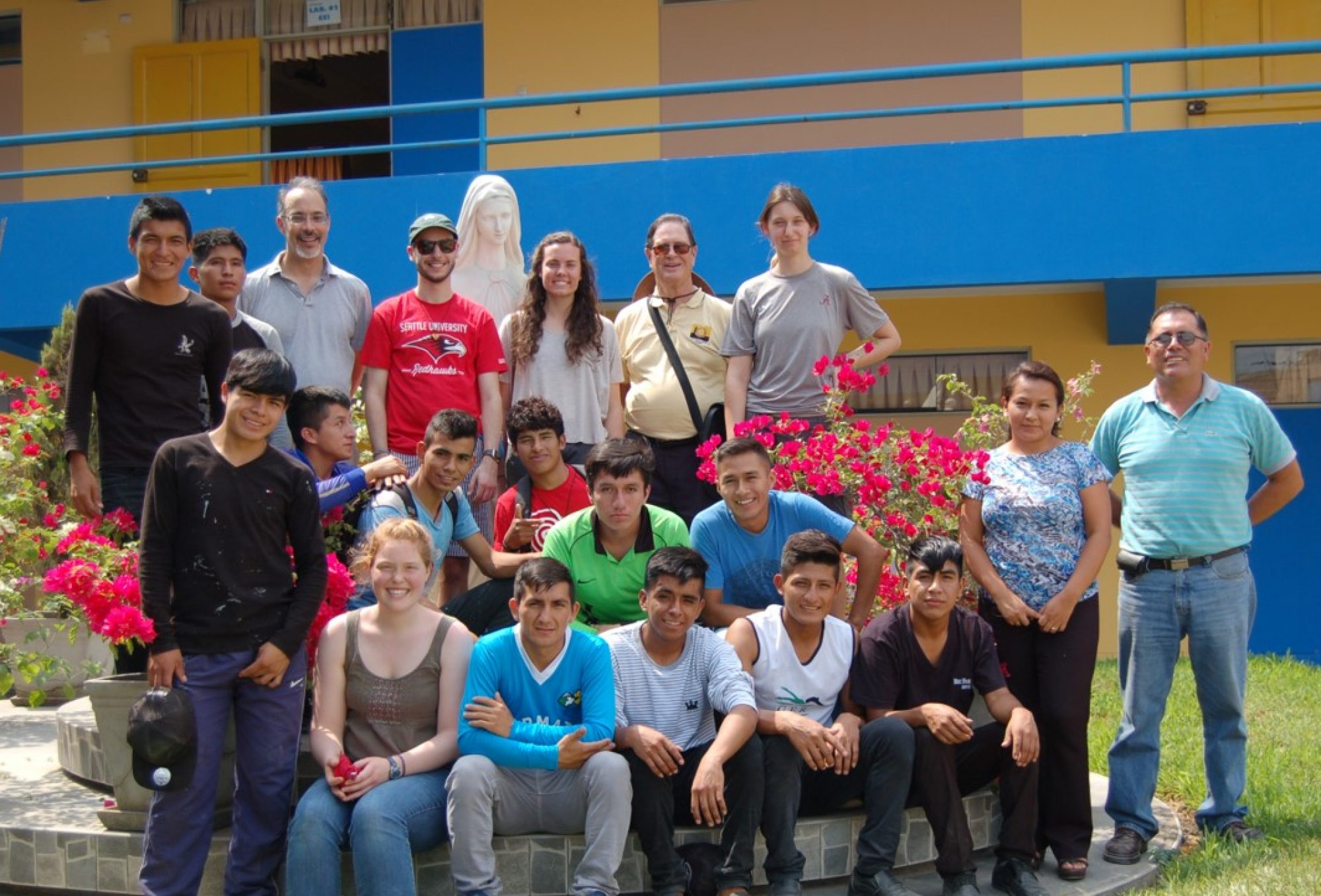When you sit down to enjoy your “cup of Joe” you are in a sense connected to all those who brought that morning elixir to your table: to those who grew, harvested, sorted, packaged, transported, and ground the beans. To extend the connections further, that morning cup also links you to water, soil, and bird habitat. 
To pay attention to these kinds of linkages is one way of understanding what working toward environmental justice and sustainability means. A group of Seattle University students, professors, and alumni did just that when, in December 2012, they traveled to Matagalpa, Nicaragua, along with two students from Managua’s Universidad Centro Americana (UCA). The team was specifically interested in the connection between the coffee grown by small-scale, rural producers and the wastewater discharged downstream when the beans were processed. 
The team chose a site near La Dalia, Nicaragua, on which to design and construct a gravity-powered wastewater treatment system which would prevent the discharge of polluted effluent from the coffee processing operation. The team is hoping to use sedimentation basins, sand filters, and possibly a constructed wetland in their design. They are also exploring if they can convert the coffee waste into methane, which can in turn be used for heating or cooking.
The pilot testing process began on SU’s campus in July, 2013, with the arrival of two UCA students, Adriene Clark and Roger Midence. Under the guidance of Dr. Mike Marsolek (Assistant Professor in the Department of Civil and Environmental Engineering), the pair simulated coffee wastewater effluent using mango extract. They also constructed and tested the effectiveness of sand filters. Adrienne and Roger will replicate these tests on the coffee farms during harvest season, with actual coffee waste. Their data and findings will be incorporated into the final design.
Once an effective wastewater treatment system is designed, Marsolek’s team will develop a one-page instructional flyer to disseminate to other coffee growers in the region – providing them with the knowledge to construct their own systems.

